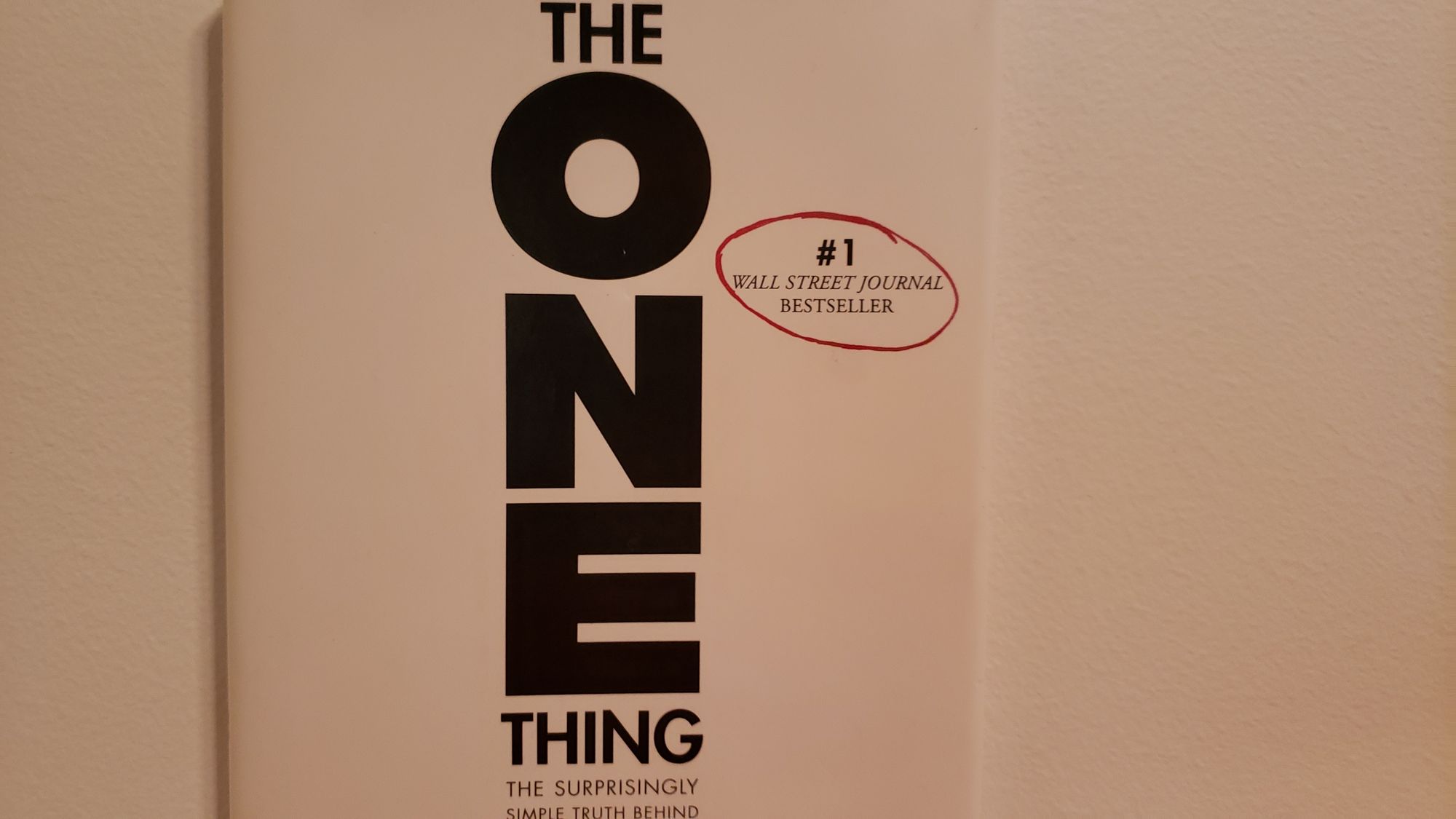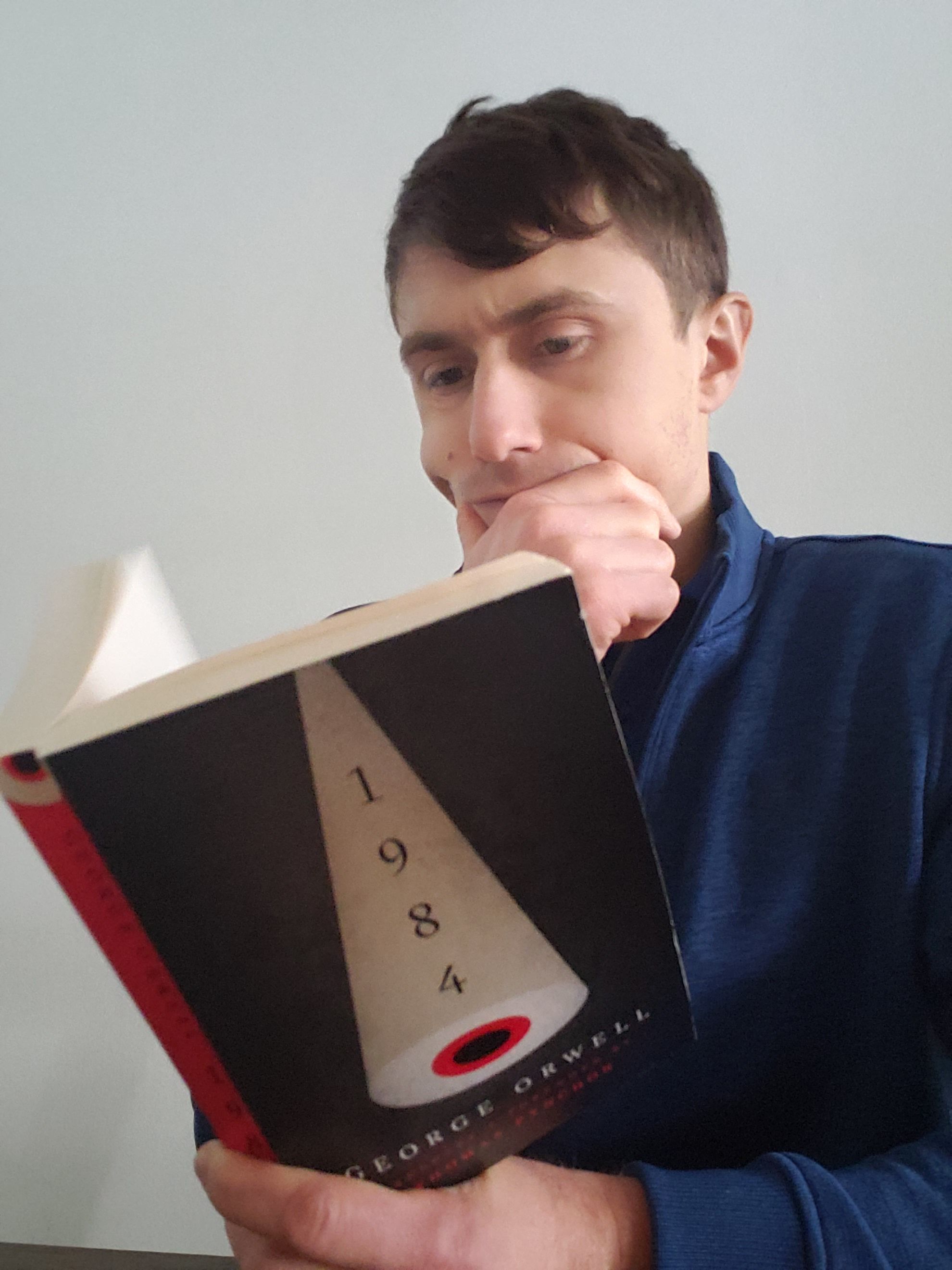The Lies They Tell Us

One of the more surprising things about rereading “The One Thing” is coming across the section of the book titled “The Lies”. This was a part that I had actually completely forgot about, and Gary hits us with the lies about success with the first few chapters of the book. It actually is the most important section, and it’s only right that we have to start with the lies and recognizing how they hinder us. It reminded me of how Don Miguel Ruiz talked about removing the old agreements of your life and replacing them with the new positive agreements.
So what are the lies that they tell us about success?
- Everything Matters Equally
- Multitasking
- A Disciplined Life
- Willpower
- A Balanced Life
- Big is Bad
When you first see the list, you might have a similar response that I did, “What?! Discipline is good! Willpower is a good thing!”. What Gary writes about in each topic might surprise you and give you a different perspective about how these things can derail us from success.
Everything Matters Equally
In this section Gary flat out says that not everything in your life is a priority. One of the things that locks us into this type of thinking is the dreaded to-do list. What ends up happening you make these lists, is that they often contain things that don’t really need to get done. They can tend to be what you COULD do, not necessarily what you SHOULD do. Gary says that the people who are the most successful always work from a clear sense of priority. How do you find out what your true priorities are? Well, a big part of that is asking the focusing question. “What’s the ONE THING I can do, such that by doing it, everything else will be easier or unnecessary?” The whole goal is to dwindle your to-do list into that ONE THING that you should be doing.
Multitasking
The whole point of the philosophy of the one thing is that you never have the need to multitask. When you know your one thing, you do not feel the need to juggle multiple balls at once. This does not necessarily mean you only ever do one thing, all day every day. Gary notes that you should not pressure yourself when you get distracted. We all get distracted, it is just natural, but when it's go time you must realize what multitasking does to your focus on your one thing. When we switch from task to task, we must reorient ourselves to the current task at hand and this takes time. This means that every time you switch to a task, you have to figure out where you left, get your mind back into gear for that task, etc. Add this up over the course of a day/week/..year and those precious seconds or minutes add up. Also, the chances of you switching back to your original task decrease when you end up spending more time on other tasks.
A Disciplined Life
I mentioned on our episode of the blog dealing with this chapter that Jocko Willink wrote a book titled, “Discipline Equals Freedom”. I was shocked to see Gary include this section as one of the lies! After rereading it though, I could see that he was very deliberate in his views of discipline. To summarize, success is not about doing EVERYTHING right, it’s about doing THE RIGHT thing. If you try to be disciplined in all things, every day, of every week, I feel like that is a recipe in getting burnt out. Eventually you will crack, become dejected, and potentially unhappy. You will sacrifice moments of fun, joy, spontaneity all in the name of staying disciplined. Instead, Gary talks about using selective discipline. Yes you can still go out with your friends, hang out with your family, spend time on the lake, take your dog for a walk, etc. Again, when that time has come to where you focus on your craft, that is the time to let your discipline shine. Eventually, that selected discipline in that craft turns into a habit that becomes second nature, much like we talked about with our series on “With Winning in Mind”.
Willpower
Again, I always thought willpower was a good thing! However, Gary mentions that your willpower is something that has a fuel gauge, or a battery life (21st century analogy). Sometimes you will try to call your willpower into action to work on your one thing, and it might not be there. You might be tired, stressed out, not feeling it, or just plain old hungry (me all the time…). It is important to recognize the states of low willpower and not try to fight it, this will lead to more frustration. Working on your one thing should be done when your willpower is at full strength, so take measures to ensure you are at full strength like: getting a good night’s rest, eating well, working at your most productive times of day. I have started to learn this with my one thing. I find after a certain time in the day, I just feel the need to chill and relax. I find that I work best on my one thing in the early mornings. That is when I am most alert and awake, and so I have tried to stick to that schedule. It’s finding those times of peak willpower and sticking to them that is the key.
A Balanced Life
Gary lays out that in order for you to have any sort of success in life, you will go out of balance. You are going to have to make sacrifices, you are going to have to spend more time on certain things and less time on others. That is ok. What we mean by wanting balance, Gary says we really mean counterbalancing. I think of the hardworking father who spends all his time at the office for a couple days, but then at the end of the week is able to spend the whole day out with his son taking him to the baseball game. He counterbalances in the other direction by not letting work get in the way of his day with his son. Success comes at the extremes, but spend too much time at the extremes and things may start to suffer. If you constantly hover at the middle of every facet of your life in hopes of balancing everything out, you will tend to not really accomplish all those goals you had in mind. Live on the edge, don’t be afraid of the extremes, just be ready to ride the wave the in the other direction.
Big is Bad
To me, this chapter was all about setting limits. I gave the basketball example in the video blog for this chapter. If you set a goal of 40 points in your next game, and then only make 30, you might feel disappointed that you did not reach your goal. However what if you set your goal to 10 points, and you end up scoring 15. Sure you feel happy you exceeded your expectations, but if you would have raised the bar, you could have reached that 30 point mark. Oftentimes I have not set big goals because of that fear of not reaching it, but the tragedy is in setting a low bar and exceeding it. That means you could have gone farther, but your mind held you back. Success is going to require thinking big, and yes failure might happen, but the failure of being 10 points shy of 40 would be better than scoring 15…
Some of these points are definitely eye opening and go against the norm of things that I have thought about structuring my life. The biggest adjustments that I have made in my life after rereading Part 1 of the book are being cognizant of when my willpower is low and not fighting it, and learning to live with being out of balance for a while. All in all, it takes time to come to grips with these principles and reform your ways to get what you want out of life.
